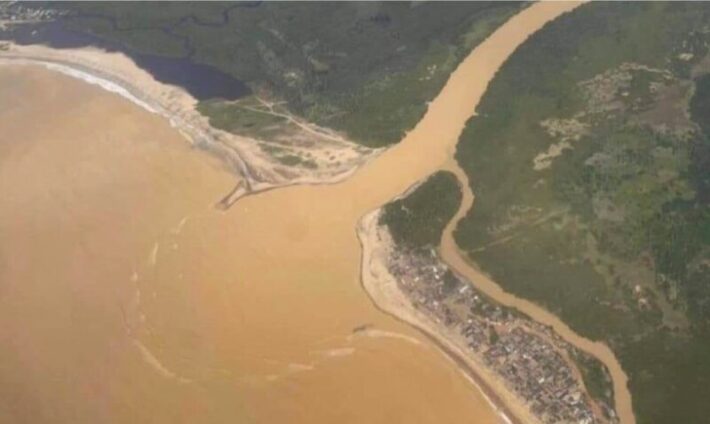The Deputy Director at the Ministry of Sanitation and Water Resources has stated that Ghana’s new water policy will help address the illegal mining ‘galamsey’ menace.
Kwaku Quansah said the nation could not continue to allow its water bodies to be polluted with heavy metals, and therefore, called on those involved to stop mining in these rivers, to save them for posterity and the future.
Mr Quansah stressed that if the current rate of pollution continued, the country would have no option but to import water, which would be very expensive for Ghanaians.
The Deputy Director disclosed this to the Ghana News Agency in Ho at the just-ended MOLE XXXV WASH conference.
The conference was organised by the Ghana Coalition of Non-Governmental Organisations (CONIWAS), on the theme: “Looking Back on SDG Six Implementation in Ghana: Progress, Challenges and the Way Forward”.
Mr Quansah said another important area the Ministry wanted the new water policy to work on was the increasing cost of water in rural areas.
“The critical challenge that we want the new policy to address is the fact that some Ghanaians who live in the rural areas are paying more for water than the urban areas.
“Since water is a public good there is the need to reverse it by increasing access to water for all,” he said.
The Ministry of Sanitation and Water Resources has outdoored the 2024 Water Policy which is a revised version of the 2007 document and sought to look at issues on sustainable financing to bring on board Small Water Enterprises.
He said this would help the enterprises to play their roles effectively and support the delivery of water for all Ghanaians.
Again, the 2007 Water Policy was able to achieve the Millennium Development Goals, (MDGs) far before the end of the MDG period.
Mr Quansah was of the view that with concerted efforts and with everyone on the table even in the midst of all the challenges facing the sector, they would implement the new water policy to be able to serve water to all.
Some topics that were discussed at the conference included; policy and sustainable financing for WASH and building community resilience through water resources management and Leveraging Local Government -led partnerships to reach the last mile.
Others were looking back on the implementation of SDG six: progress, challenges and way forward; the role of the Parliamentary Select Committee for WASH in accelerating progress institutional framework among others.
Latest Stories
-
We’ll cut down imports and boost consumption of local rice and other products – Mahama
2 hours -
Prof Opoku-Agyemang donates to Tamale orphanage to mark her birthday
3 hours -
Don’t call re-painted old schools brand new infrastructure – Prof Opoku-Agyemang tells gov’t
4 hours -
Sunon Asogli plant will be back on stream in a few weeks – ECG
4 hours -
ECOWAS deploys observers for Dec. 7 election
4 hours -
73 officers commissioned into Ghana Armed Forces
4 hours -
Impending shutdown of three power plants won’t happen – ECG MD
4 hours -
Ghana shouldn’t have experienced any ‘dumsor’ after 2017 – IES Boss
5 hours -
Lamens flouted some food safety laws in re-bagging rice – Former FDA Boss Alhaji Hudu Mogtari
5 hours -
Afcon exit: Our issue is administrative failure and mismanagement, not lack of talent – Saddick Adams
6 hours -
WAPCo to commence major pipeline maintenance and inspection from November 25
6 hours -
CEO of Oro Oil Ghana Limited Maxwell Commey listed among the 100 Most Influential People Awards, 2024
6 hours -
Power crisis: Amandi is off due to maintenance, not debt – ECG Boss
6 hours -
Votes cast for late Akua Donkor to be declared invalid – Electoral Commission
7 hours -
You can’t keep “incompetent” Otto Addo for the long term – Countryman Songo
7 hours

